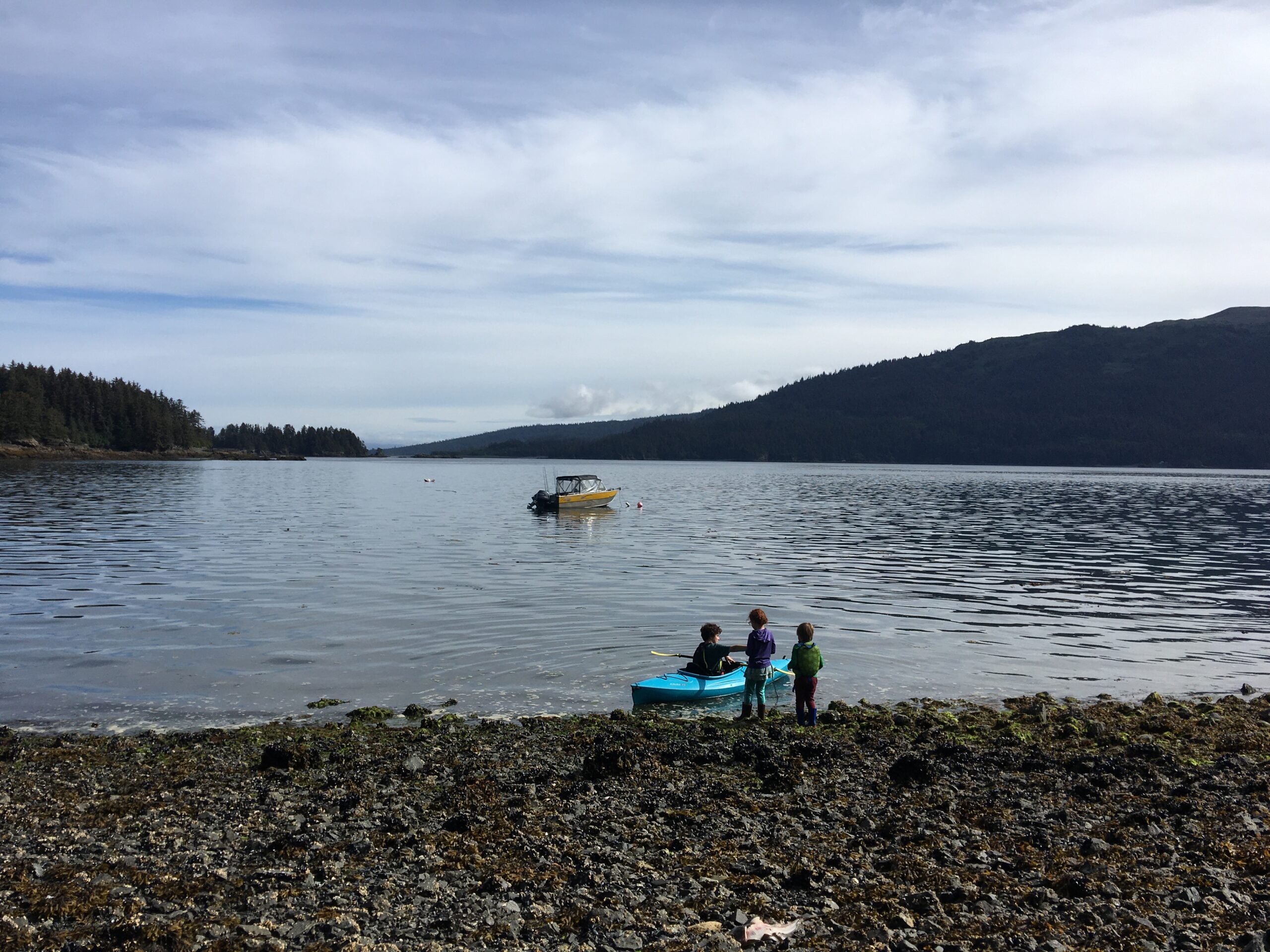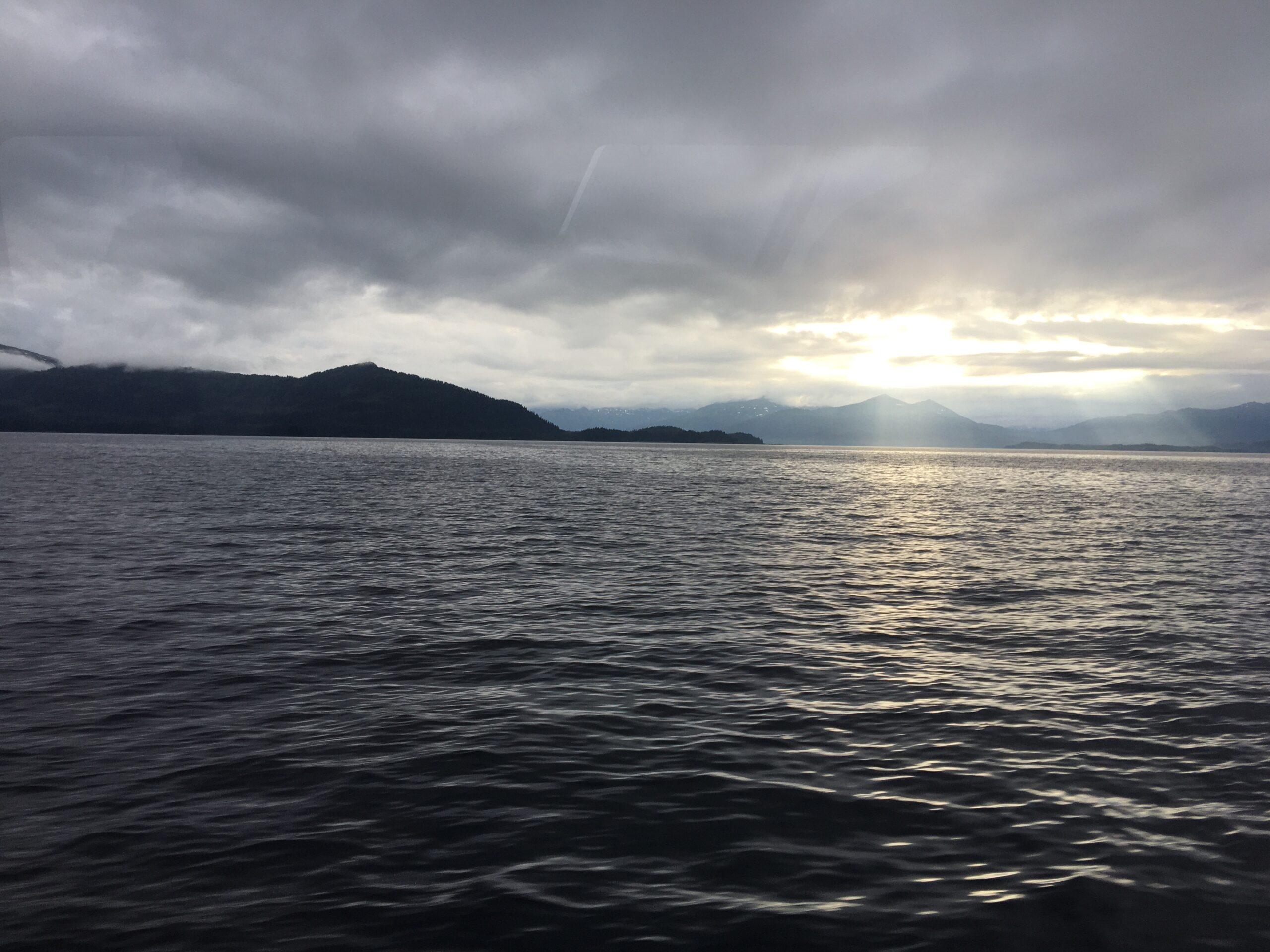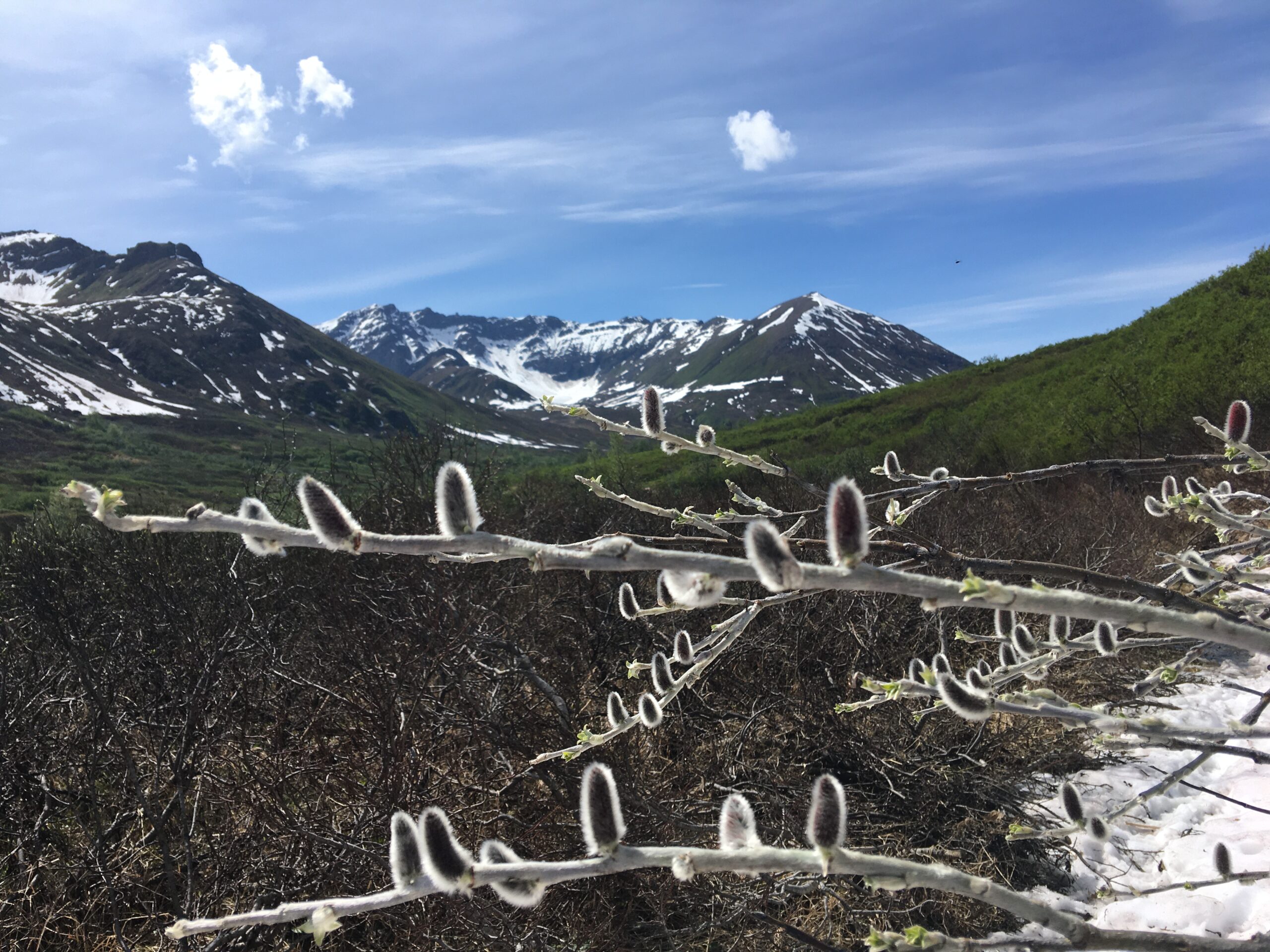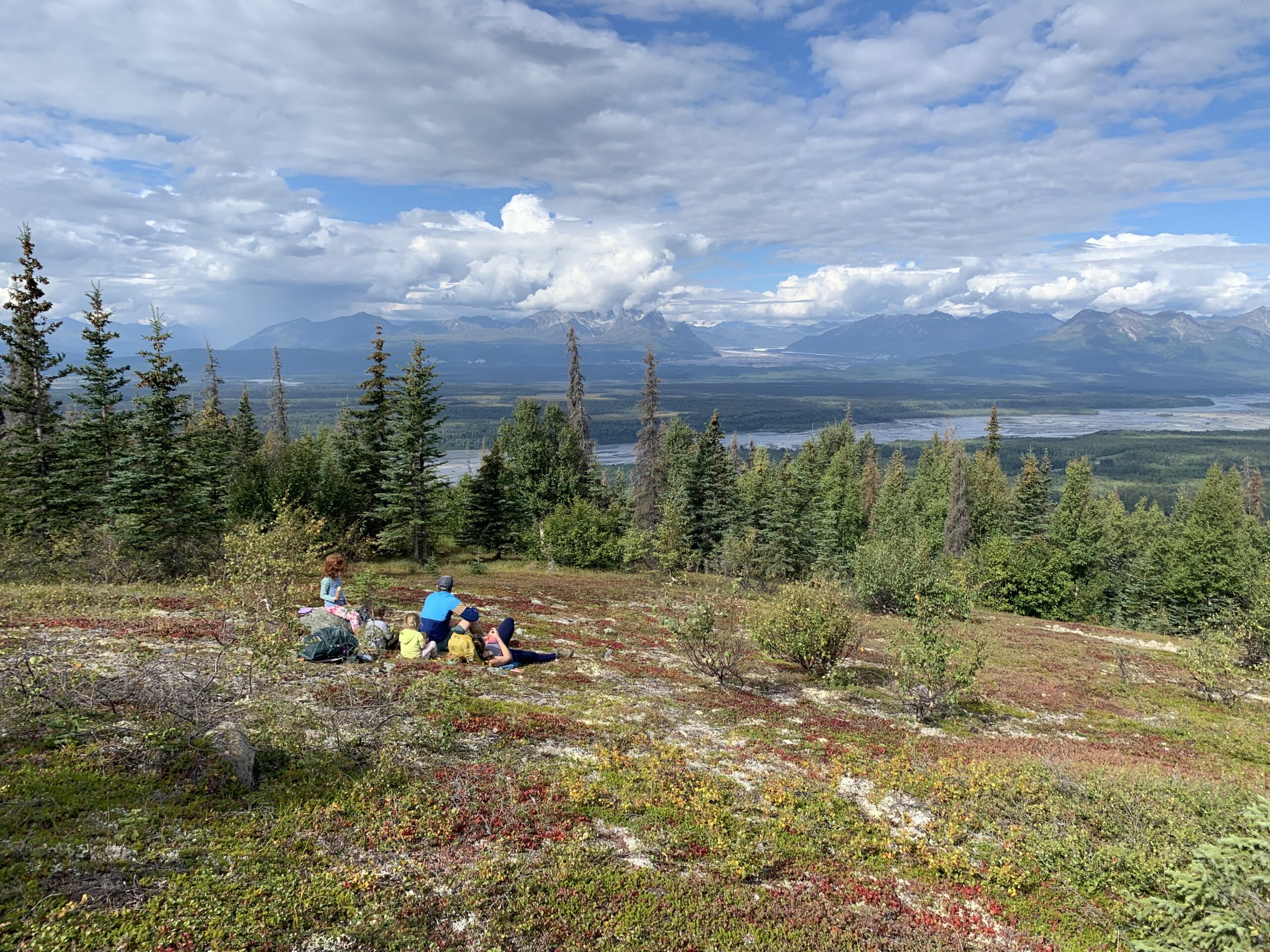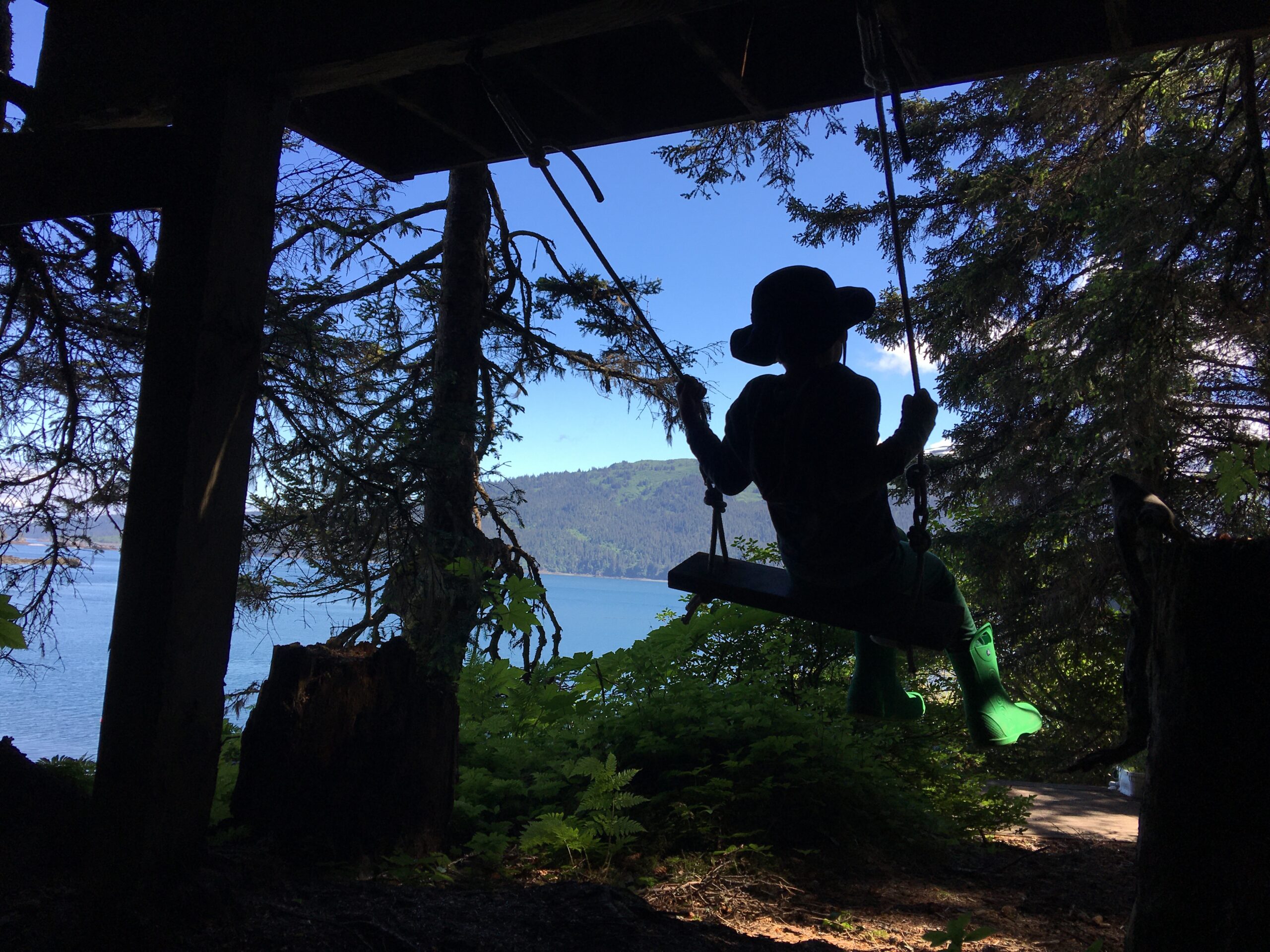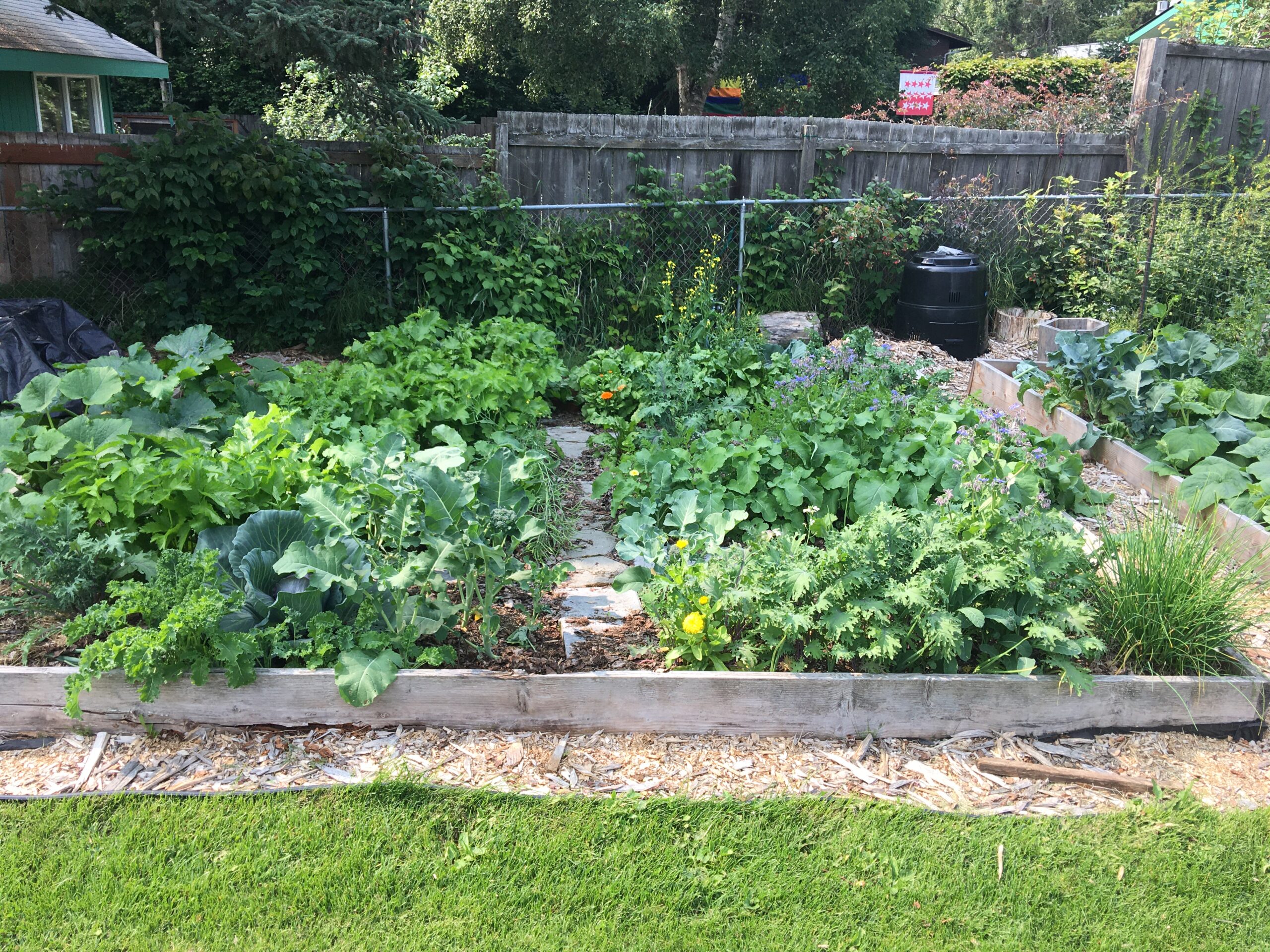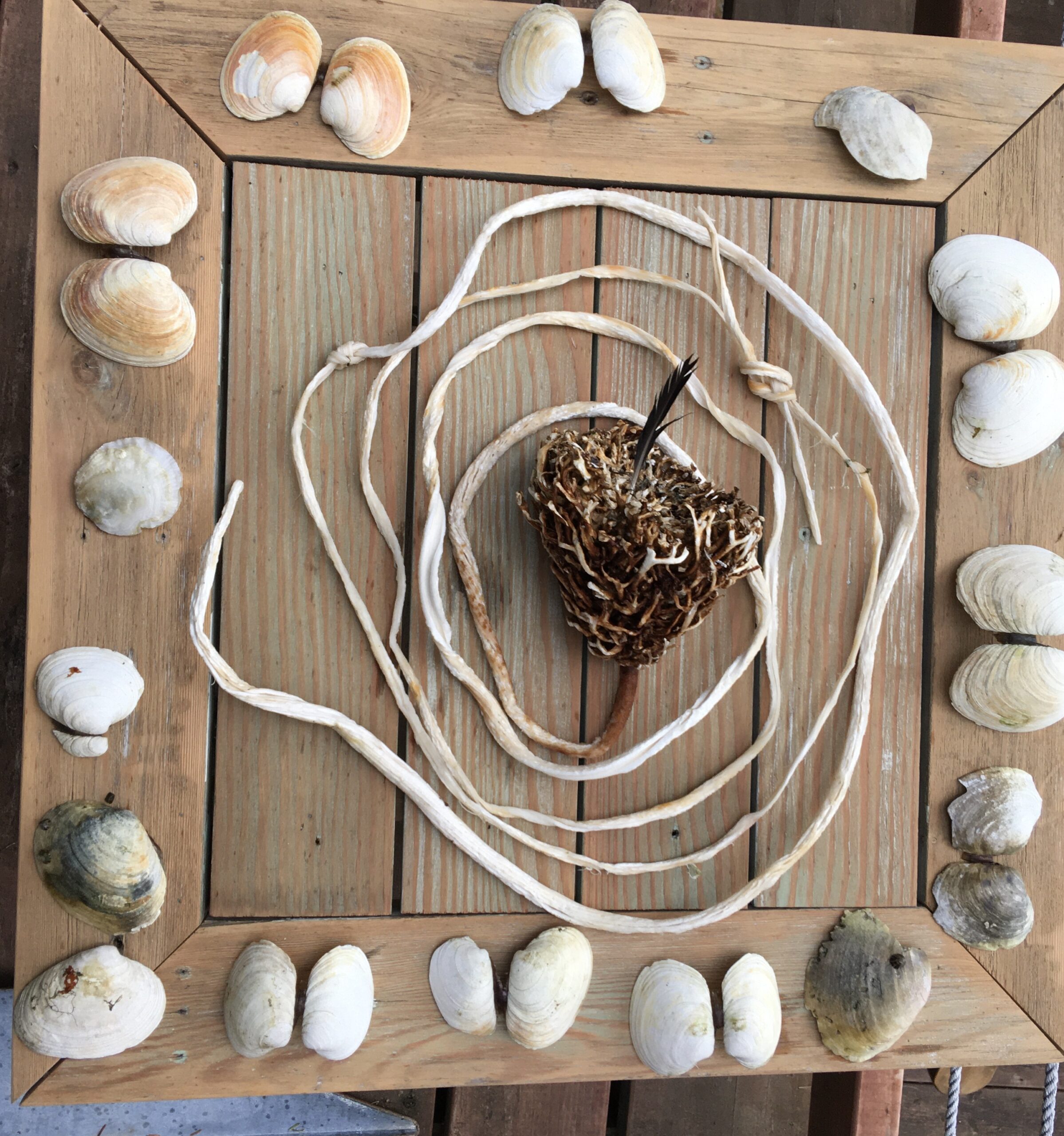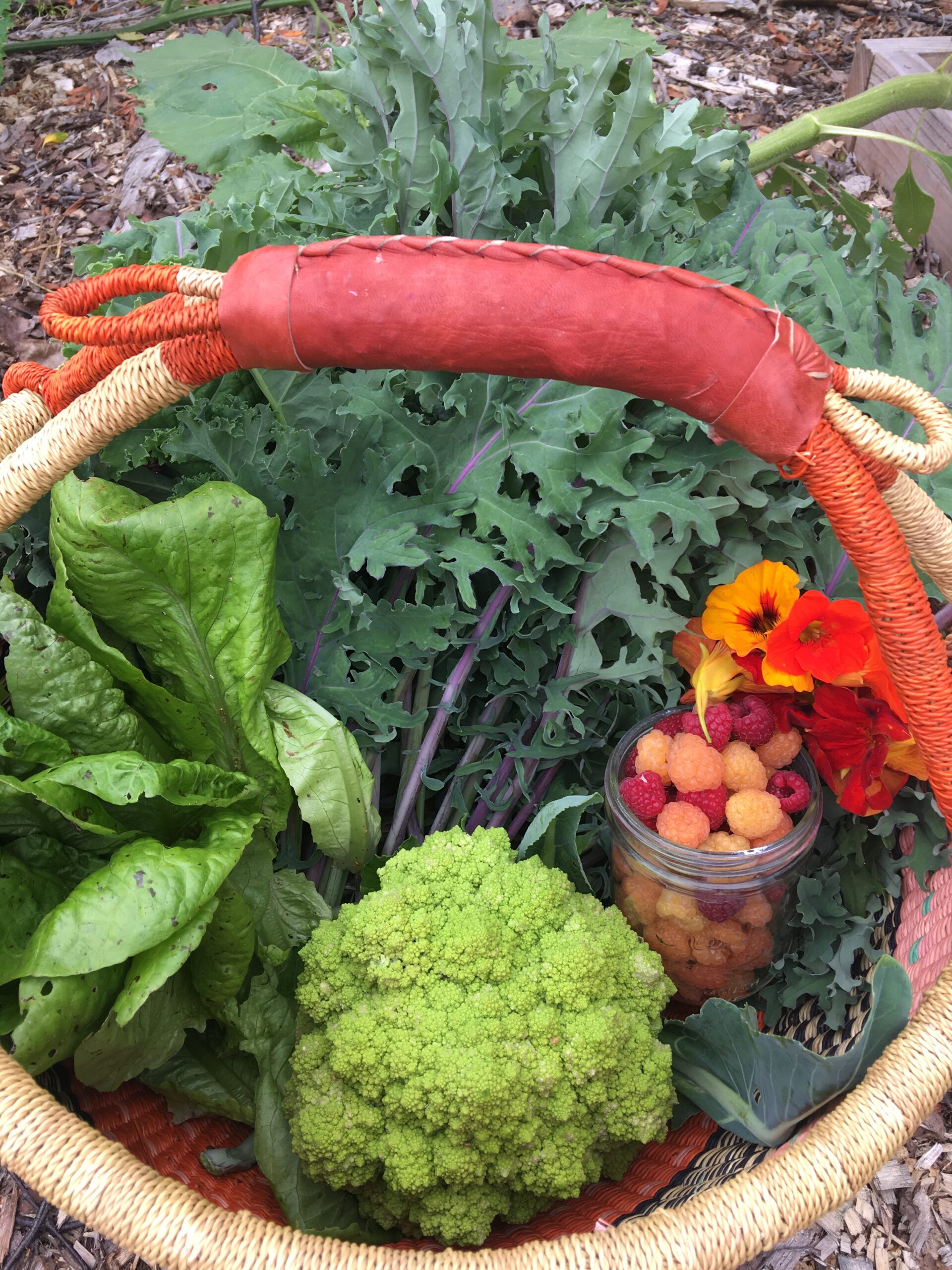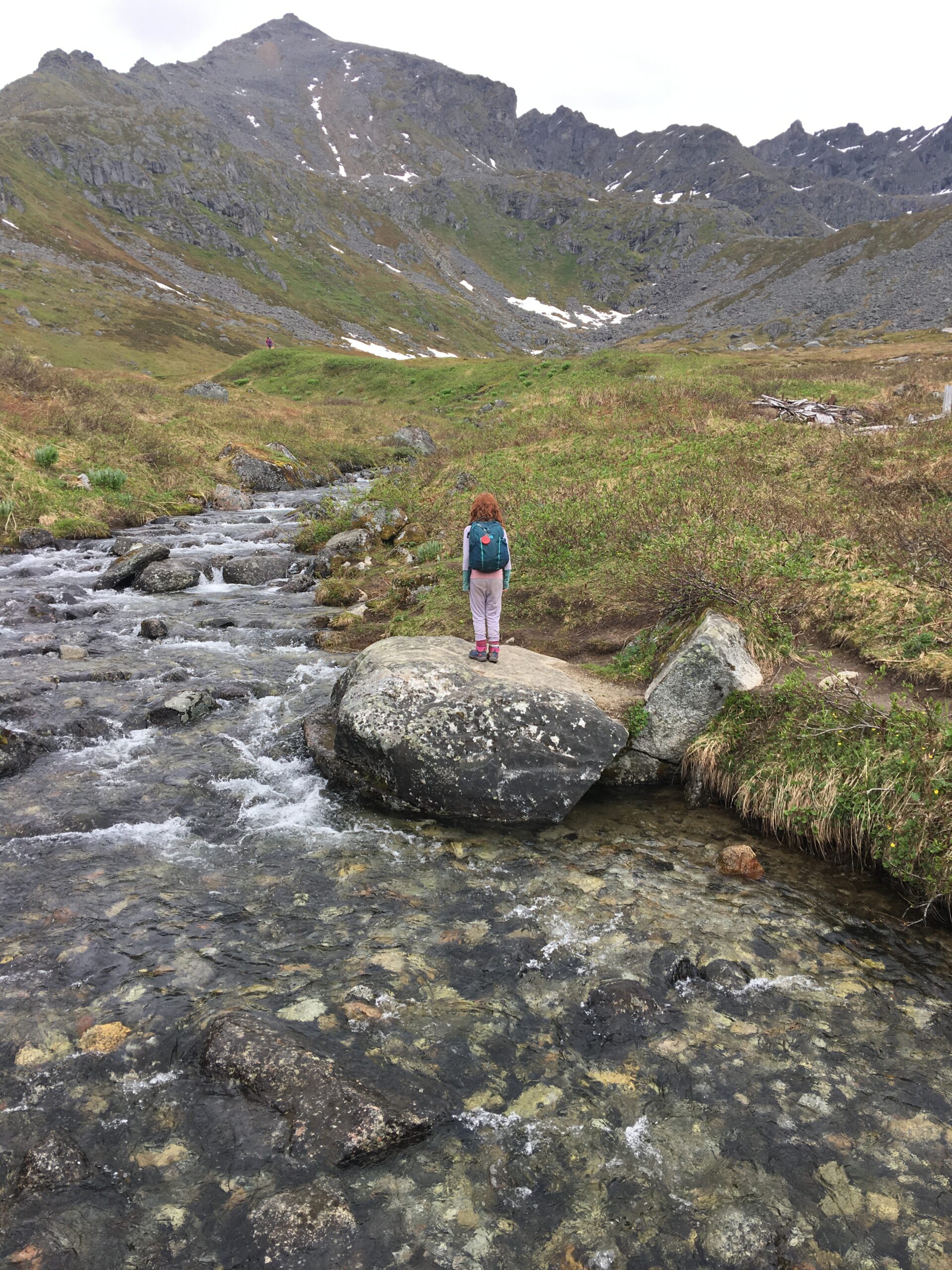Kait and her husband Dave live in Alaska with their three young children. Kait works as a Postpartum Doula and Dave as a scientist for the state. They love their outdoorsy lifestyle and have created an incredibly close-knit community with their neighbors and friends. However, their beloved home has some serious structural issues that need to be remediated, but will likely be very expensive. Let’s travel to Alaska to help Kait and Dave determine what to do next.
What’s a Reader Case Study?
Case Studies address financial and life dilemmas that readers of Frugalwoods send in requesting advice. Then, we (that’d be me and YOU, dear reader) read through their situation and provide advice, encouragement, insight and feedback in the comments section.
For an example, check out the last case study. Case Studies are updated by participants (at the end of the post) several months after the Case is featured. Visit this page for links to all updated Case Studies.
The Goal Of Reader Case Studies
Reader Case Studies intend to highlight a diverse range of financial situations, ages, ethnicities, locations, goals, careers, incomes, family compositions and more!
The Case Study series began in 2016 and, to date, there’ve been 80 Case Studies. I’ve featured folks with annual incomes ranging from $17k to $200k+ and net worths ranging from -$300k to $2.9M+.
I’ve featured single, married, partnered, divorced, child-filled and child-free households. I’ve featured gay, straight, queer, bisexual and polyamorous people. I’ve featured women, non-binary folks and men. I’ve featured transgender and cisgender people. I’ve had cat people and dog people. I’ve featured folks from the US, Australia, Canada, England, South Africa, Spain, Finland, Germany and France. I’ve featured people with PhDs and people with high school diplomas. I’ve featured people in their early 20’s and people in their late 60’s. I’ve featured folks who live on farms and folks who live in New York City.
The goal is diversity and only YOU can help me achieve that by emailing me your story! If you haven’t seen your circumstances reflected in a Case Study, I encourage you to apply to be a Case Study participant by emailing your brief story to me at mrs@frugalwoods.com.
Reader Case Study Guidelines
I probably don’t need to say the following because you folks are the kindest, most polite commenters on the internet, but please note that Frugalwoods is a judgement-free zone where we endeavor to help one another, not condemn.
There’s no room for rudeness here. The goal is to create a supportive environment where we all acknowledge we’re human, we’re flawed, but we choose to be here together, workshopping our money and our lives with positive, proactive suggestions and ideas.
A disclaimer that I am not a trained financial professional and I encourage people not to make serious financial decisions based solely on what one person on the internet advises.
I encourage everyone to do their own research to determine the best course of action for their finances. I am not a financial advisor and I am not your financial advisor.
With that I’ll let Kait, today’s Case Study subject, take it from here!
Kait’s Story
Hello! I’m Kait, I’m 37, my husband Dave is 41 and we have three kids (an 8-year-old girl, a 5-year-old boy, and a 1-year-old girl). We live in Alaska where I work as a Postpartum Doula and Dave as a scientist for the state. I also manage some administrative stuff for a builder (8 hours/month) and in the summer I manage AirBnbs (although, because of the pandemic, I only managed one last summer and am not sure if I will continue this summer. It will depend on the owners of the house).
We love Alaska (this is where I grew up) and being outdoors. Favorite activities include: hiking, skiing, camping, gardening, biking, fishing and basically anything outside. I am quite passionate about growing and preserving food. Most summer weekends you will find us out adventuring in one way or another. In the winter, we’ll be skiing, ice skating on the nearby lagoon, sledding and reading books.
Kait’s Frugal Journey
I’ve been on a frugal journey for most of my life. I’ve always hated shopping and the accumulation of stuff. My brain feels cluttered on the inside so it’s important to have my outside world organized so I can function. The knock on effect is that I don’t like to bring things into the home and therefore really deliberate before purchasing anything. I’ve been a saver forever but, until a few years ago, didn’t really have a plan as to what I was doing with my savings. Investing was something that was talked about in my family but my dad invests very differently. He spends a lot of time and energy on it and that style really put me off. It wasn’t until I learned about index funds that I was like, “Whoa! This is my jam. Set it and forget it!” Since then, I’ve socked away every extra penny with a purpose.
My husband’s financial values greatly differ from mine. Whereas I am happy to do without for the long term goal of getting to do what I want when I want, he wants to spend money now on what he wants. He grew up in the UK where there are a lot more financial safety nets like universal heath insurance and where, without really thinking about the future, you can live off your pension when you’re older. We have been married 10 years now and he is leaning more to my way of things. Having a common goal is really helpful even though I don’t think ours line up exactly.
He loves his work and honestly does not think he wants to retire early. I am trying to paint the picture for him that not everything always goes to plan and having options–even if you don’t use them–will only improve the quality of our lives in the long run. I finally got him to read The Simple Path to Wealth (after years of trying) and I think it is really helping with his journey (affiliate link). I also really want our children to be raised in an environment where money isn’t the answer to every question.
I feel like I am pretty dang frugal. We use the library, I make 99.9% of our meals at home from scratch, I bake sourdough bread like its my job, buy in bulk when it will save us over the long term, utilize Buy Nothing for gifting and receiving, and all my friends know we are grateful for hand-me-downs. And when we need outdoor gear, I sell to our local gear resale shop and then get what I need in the next size up. I play the loooonnnggg game waiting for things that we need or want. I’ve only purchased a couple items of clothing for myself in the last few years (including a sweatshirt that was technically a Christmas present that says Kale Yeah! I have no regrets).
We subsistence fish for salmon in the summer and I grow a massive garden and freeze, can, smoke and preserve whatever I am able. During apple and berry season, every night after dinner we go out and harvest. I probably dry 10 gallons of apple chips, freeze 10 gallons of raspberries, make jam, can 4 or 5 flats of apple sauce, etc. Having a root cellar would make utilizing my harvest last so much longer. I basically do not buy anything that is not on sale and we don’t really buy any convenience foods.
Dave jokes that we have a U-PICK farm in our backyard as someone is always stopping by for something. My older kids set up a mini farmers market in our neighborhood. They used this money as their fun fund. The oldest chose to join girl scouts this year and paid for the membership, vest and some activities with her earnings. We do eat meat but not a lot. Most of our protein comes from beans and lentils. I am a die-hard Instant Pot fan!
We live entirely off of Dave’s income and all my earnings go into investments. I definitely want to keep living this way.
What feels pressing right now? What brings you to submit a Case Study?
1. The House:
Our house has some issues, specifically foundation cracks and basement leaking.
These issues would prevent us from ever renting the house out as they require constant vigilance. I imagine the cost to repair them will be astronomical compared to the value of the house (which is around $400k) and so I feel like it is not worth it to repair. We haven’t gotten estimates on the repair costs yet. Backstory on the house: it was my brother’s and he passed away, so I don’t feel like I can ever sell it.
I realize that making financial decisions based on emotions is not a good idea but, here we are. We love our neighborhood and particularly that we have a large south facing backyard (oh so important in Alaska) and our back-of-the-fence neighbors are like family to us. There’s a gate in the fence and a well-trod path between our houses, which we affectionately refer to as the compound. We eat dinner there on Sundays and sometimes more than once a week. The family is a mum, dad and 2 teenage boys who will both be in college come fall. We don’t have any family nearby, so the emotional, practical and physical support this family provides for us is priceless. The thought of moving even one block away makes me feel horrible.
I also am now the only child and will be responsible for my aging father when the time comes (he is 78). My ideal is to rebuild our house and add an attached apartment for my dad or other visitors to use when needed. I would AirBnb the apartment when it wasn’t in use to help offset the costs of the build. Then, when our kids are grown and out of the house, Dave and I would live in the apartment and rent out the main house. To add a bit of complication to this equation, I am very interested in building a net zero (or close) house, which would add to the overall costs. My dad has offered to pay off whatever we have left on our mortgage if we decide to rebuild.
2. The Job
My husband is at the top of where he can go for his career here in Alaska (he works as a scientist for the state). He doesn’t think he’ll be ready to move on to something else for at least another five years, but when he is, it will likely mean a move or a transition into consulting work.
My vote would be not to move, but there are a lot of factors that will come into play. If and when we move, I wouldn’t want to sell the house, but we couldn’t rent it as is. To be clear, this isn’t something that needs to happen immediately, but it’s on the horizon.
3. The Long-term Goals
Our long-term goals are Coast FIRE or FIRE.
What’s the best part of your current lifestyle/routine?
Where we live specifically and also the wilds that we have within easy reach. The sense of community I have from our neighborhood is the only thing that has kept me sane these last few years. When I was 38 weeks pregnant, I had an entire trailer full of manure delivered to the other side of the compound (back fence family) because it was closer to my garden beds then delivering it to the front side of our house. Just the fact that they agreed to let me dump hundreds of pounds of poop in their yard is something in and of itself.
After it was delivered, I had a little freak out that my VERY pregnant body was not going to be able to put a dent in this pile and it had to be done. I texted a handful of neighbors an SOS and within three hours, the entire pile had been doled out to all my garden beds and the remainder to everyone else’s gardens. The rest of my gardens were harvested and put away for the winter and some of the harvest was taken by another neighbor to make into ferments for me. I delivered exactly one week later. Both my husband and I have a handful of close “I would do anything for you” friends in our neighborhood and I am not sure I could ever replicate this. I guess if I didn’t live right here I wouldn’t even want to live in Alaska!
It’s also so easy to get out into the mountains or go off camping here. I love the access to the outdoors as it is our main source of enjoyment as individuals and as a family.
What’s the worst part of your current lifestyle/routine?
Constant worry about the house and what we should do about it. I’m already exhausted with decision fatigue from having 3 kids, let alone being in a pandemic.
Where Kait Wants to be in Ten Years:
- Finances:
- Solidly Coast FIRE or FIRE.
- Lifestyle:
- Able to leave our house for extended periods of time and travel more.
- Have the option to work as wanted, not because we need it. Maybe live other places for a couple months at a time (winters here are LONG!)
- Career:
- I’d like to continue working as a Postpartum Doula, but in a capacity that fits with taking lots of time for family things.
- Dave would like to advance in his career by taking on new challenges. What this actually means for him is unknown at this point.
Kait & Dave’s Finances
Income
| Item | Amount | Notes |
| Dave’s Income | $5,407 | Minus retirement contributions, insurance, and taxes |
| Kait’s Income | Variable | Variable as we live off of Dave’s and all of mine goes into our investments. |
| Monthly subtotal: | $5,407.00 | |
| Annual total: | $64,884 |
Mortgage Details
| Outstanding loan balance | Interest Rate | Loan Period and Terms | Equity | Purchase price and year |
| $133,974 | 2.75% | 30-year fixed-rate mortgage | $110,000 | House was part of an estate settlement in 2013. Worth $400k. |
Debts: $0
Vehicles
| Vehicle make, model, year | Valued at | Mileage | Paid off? |
| Custom Camper 1980 | Priceless | 180,000 | Paid off and I will never get rid of her. My grandparents had her built in the 80’s and gave it to us a couple years ago. She is her own person! |
| Honda Pilot 2016 | $14,000 | 70,000 | Yes |
| Subaru Forrester 2012 | $8,000 | 90,000 | Yes |
Assets
| Item | Amount | Notes | Interest/type of securities held/Stock ticker | Name of bank/brokerage | Expense Ratio |
| Dave’s combined retirement accounts through work | $311,151 | Through the state | Target retirement date funds | ||
| Gold & silver coins | $112,000 | ||||
| Joint brokerage account | $71,354 | Oomph, this looked a lot better in April | VTSAX | Vanguard | 0.01 |
| Joint savings account | $36,027 | Emergency fund + travel fund and 7k+ business savings for taxes 2k | 0.50% | ALLY | |
| Dave’s IRA | $17,453 | VTSAX | Vanguard | 0.01 | |
| Joint Checking at Local Credit Union | $8,421 | Used for monthly expenses. I keep the balance around $7-8k for easy access. | AKUSA | ||
| Kait’s IRA | $8,287 | VTSAX | Vanguard | 0.01 | |
| 529 Kid #1 | $6,753 | ||||
| Investment Fund for Kid #1 | $5,564 | My dad manages this and I let him do his own thing. | |||
| Dave Individual account at local credit union | $4,300 | Just in case-quick access money | AKUSA | ||
| 529 Kid #2 | $4,269 | ||||
| Brokerage Kid #1 | $3,525 | Half of their Permanent Fund Dividend goes in here the other half to their 529 | VTSAX | Vanguard | 0.01 |
| Investment Fund Kid #2 | $2,848 | My dad manages this and I let him do his own thing | |||
| Brokerage Kid #3 | $2,000 | Half of their Permanent Fund Dividend goes in here the other half to their 529. She has more because the first time she got a PFD it all went in here. | VTSAX | Vanguard | 0.01 |
| Kait Individual at Local Credit union | $1,800 | Just in case-quick access money | AKUSA | ||
| Brokerage Kid #2 | $1,350 | Half of their Permanent Fund Dividend goes in here the other half to their 529 | VTSAX | Vanguard | 0.01 |
| 529 Kid #3 | This one is under my husband’s name and I cant log in at the moment. We need to call. It’s probably about $1k | ||||
| Total: | $658,202 |
Expenses
| Item | Amount | Notes |
| Mortgage | $1,937 | |
| Groceries | $675 | It was $575 but I was finding it harder and harder to stay within budget. Things will get easier once the garden starts producing, but as of now there is still a bit of snow left! Includes all household items such as cleaning supplies, diapers (but we EC so only use one at night). |
| Straight to investments | $425 | Automatically sent to investments. At the end of the month I also transfer whatever is left into Investments. Kid #2 is done with preschool now (so we’re not paying for that) and are putting most of that to investments. |
| Petrol | $350 | It’s high as the camper is a hungry girl. |
| Car Insurance | $201 | Will increase a bit when we put the camper back on for the summer |
| Fun Fund for Dave and Kait | $200 | We each get $100 to do as we see fit, for presents, hair cuts, clothes etc. We also get PFDs (usually 1k/year) and do with them as we please. I almost always invest mine. |
| Natural Gas | $180 | |
| Water, Waste Water and Utility | $115 | |
| Electric | $110 | Obviously higher in the winter and variable but I do my best to keep this low. Go put on a sweater! |
| Misc | $100 | For anything this isn’t in a category above. |
| Cell Phone | $90 | Recently switched to Cricket |
| Internet | $80 | On the lowest monthly. No better options in the land of the midnight sun |
| Accounting | $50 | I technically own some of my dad’s company so this is a must |
| Trash | $21 | Downgraded the size of our can as we never fill it up |
| Monthly subtotal: | $4,534 | |
| Annual total: | $54,408 |
Credit Card Strategy
| Card Name | Rewards Type? | Bank/card company |
| Alaska Airlines Visa | Travel | Chase Bank |
Kait’s Questions for You:
- Is it even feasible to consider rebuilding our home?
- How much would this derail our Coast FIRE or FIRE plans?
- Would the extra income from renting out the property offset that in the end?
- The area we live in is next to the downtown and the trail system, so it is a very desirable area for AirBnb-ing.
- I am confident we could get $150-$200 a night in the high season and $100+/night in the low season.
- I have recently been considering transitioning to more full-time work.
- I only work evenings and some weekends so that I can be with the baby during the day. All of my income goes into our investments, but this figure is highly variable.
- Is the cost and risk of childcare worth it to work more?
- Or should I consider some type of remote position that I can do while also home with the baby?
- Are we actually on track for Coast FIRE?
Liz Frugalwoods’ Recommendations
I am thrilled to have Kait as a Case Study today because I very much identify with having “One Big Thing” weighing on your mind. In reading through Kait’s story, it feels like the situation with their home is taking up a lot of mental energy for Kait and is something she’ll feel extremely relieved to resolve. I can’t offer a magic bullet solution, but I hope I can help her and Dave think through some concrete (no pun intended… ) next steps to set them on the path to resolution. I’ll touch on the other elements of her financial life–because we can’t ever deal with one financial question in isolation–but our focus today will be on The House.
Kait’s Question #1: Is it even feasible to consider rebuilding our home?
I encourage Kait and Dave to seek out opinions and estimates from experts on what it will cost to fix the foundation issues. You can’t know if it’ll be feasible/wise until you know the price tag. I also encourage them to completely divorce the foundation/basement issues from any potential future building-an-apartment costs. The priority is to fix the existing problems. They need to do that first, then turn their attention to other possible renovations/building-an-apartment.
If it were me, I would:
- Call a BUNCH of different contractors/companies and have them come to the house, assess and diagnose the foundation/basement issues, and provide estimates on the work.
- Build a list of estimates and diagnoses to compare and contrast what different experts are saying.
- Do not hire the first person who comes to offer an estimate! This is one of those things you really want to comparison shop.
It doesn’t sound like this needs to be remediated ASAP, so I encourage Kait and Dave to take their time with gathering estimates and recommendations on how to complete this work. Ask neighbors who they recommend–word of mouth recommendations are GOLD.
After the foundation issues are resolved, Kait and Dave can work on replenishing their savings and then turn their attention to getting bids for building an ADU (accessory dwelling unit)/apartment on their property.
Some things to consider:
- What are the zoning laws for an ADU/apartment? What restrictions/allowances are in place?
- Does Kait’s dad definitely want to live there in his old(er) age?
- If so, what will the financial arrangement be?
- Will he pay them rent?
- Will he pay to build the ADU and then own it?
- How does subdivision of a lot work in their town?
- Can her dad legally own the ADU if it’s on their property?
- How will this impact taxes and insurance?
- What are the laws on how to tie an ADU into the water/sewer systems and power lines?
I strongly encourage Kait, Dave and Kait’s dad to iron out all of the legal and financial implications before deciding to build an ADU. This is NOT something you want to leave to chance. Hire a lawyer to make everything official–it’ll be so much easier in the long run.
If they do decide to build some sort of ADU/apartment and rent it out on AirBnB, here are a few more things to consider:
- Is the primary goal to make a home for Kait’s dad or to create a revenue-generating rental?
- What will it be like to have AirBnB renters right there in their yard/house? Will this impinge on their gardening/family time and space?
- Will they share the revenue from the AirBnB with Kait’s dad?
- Is moving for Dave’s job in circa 5 years a real possibility? If so, how would that impact these plans?
If the goal is to create a revenue-generating rental, Kait and Dave should build a business plan and explore getting a construction loan. This is essentially a separate proposition from creating a home for an aging relative and needs to be analyzed from a business perspective. We can’t know if an AirBnB rental will offset the cost of building without knowing the following:
- The cost of construction
- Projected rental rates by season
- Anticipated vacancies (as in, which days/weeks is it likely to not be rented)
- Maintenance and repairs
- Property taxes, insurance, AirBnB fees
- Management of the unit (cleaning, furnishing, key exchanges, etc)
- City and state restrictions, regulations and fees for running an AirBnB
Additionally, the idea of building net zero idea is highly commendable, but not something Kait and Dave can afford at their current salaries. If this is their #1 goal, they’d need to curtail all other spending/investing/saving, get higher paying jobs and let go of the FIRE/Coast FIRE goals.
Kait and Dave are at an exciting juncture: the research juncture! Now’s the time to gather as much data as they can.
Kait’s Question #2: I have recently been considering transitioning to more full-time work. Is the cost and risk of childcare worth it to work more?
If I’m reading this correctly, I sense that Kait is asking this question from both an emotional and a financial perspective.
From the financial perspective, she can–and should–gather the data needed to make an accurate calculation:
-
How much does she earn per hour?
- How much does childcare cost per hour?
- Would her and Dave’s income outpace the cost of childcare?
Additional things to consider:
- Assuming she works for herself as a Postpartum Doula, does she have the client base to expand her hours?
- Is there a network of Doulas she can tap into to expand her hours?
- Will those hours align with the hours offered by the childcare options?
- If not, will her hours complement Dave’s work hours such that he can watch the kids?
Financially, I think it’s probably a pretty straightforward decision. One caveat is that childcare costs might outpace her initial earnings as she ramps her business up to full-time. I consider that a perfectly fine and reasonable cost-of-doing-business and wouldn’t let that dissuade her initially.
From the emotional perspective:
Only Kait can answer this question. Sending kids to childcare is fine; not sending kids to childcare is also fine. Every parent and every family has to make this decision for themselves. And guess what? That decision is likely to change over time!!!! My husband and I decided this past school year to send Littlewoods to all-day preschool, which cost in the neighborhood of $200-$400/month (depending on how many school days there were in each month). I don’t regret that expense for a single second. In fact, we’ll be sending her to all-day preschool again this coming school year while Kidwoods goes to first grade. During the pandemic, we worked from home with the kids at home and, uh, I did NOT love that arrangement. It works for some families; it doesn’t for others.
Kait:
- If you WANT to work more, if you desire the fulfillment and pleasure of working, if you crave that experience in your life, do it!
- Conversely, you feel you SHOULD work more in order to earn more money, but don’t want to? Don’t do it!
- You and Dave are not in a financially precarious position. You’ve made wise choices over the years, which means you have the most important financial gift of all: OPTIONS.
Kait’s Question #3: Are we actually on track for Coast FIRE?
I’m going to answer this question by going through all of Kait and Dave’s assets.
1) Retirement:$336,891
Between their individual IRAs and Dave’s work retirement account, they have a combined total of $336,891 in retirement investments. Since they’re circa 40 years old, they should currently have 3x their income in retirement investments. We don’t know Kait’s income, so we’ll base this solely on Dave’s:
$64,884 x 3 = $194,652
Based on this metric, they’re in great shape! Additionally, this doesn’t account for Social Security, which presumably they’ll receive.
Attaining “Coast FIRE” means that Kait and Dave would continue working until a traditional retirement age, but stop contributing to their retirement investments and instead let them “coast.” One way to think about this is that, if you no longer need to earn enough to contribute to your retirement accounts every month, you need less income and thus, can presumably work less–assuming you keep your expenses low enough to be covered by your income. Depending on the age at which they’d like to enact Coast FIRE, they’ll need to do the calculations with that age and the amount in their retirement accounts at that time. Right now, they appear to be on track, but again, they’ll have to re-assess with the specific Coast FIRE age in mind.
2) Cash: $50,548
Between their four different checking/savings accounts, they have $50,548 in cash. I’m not sure I understand the need for four different accounts and, if it were me, I would consolidate to one, high-yield account. But, if there’s a solid reason for having four accounts, go for it! It’s not “wrong” to have different accounts, it’s just not the most efficient and it doesn’t take advantage of interest rates since three of their accounts earn 0% in interest. Here’s the math on that:
If they moved this $50,548 into American Express’ High Yield Savings account, which earns 1% interest as of this writing, in one year their $50,548 would grow to $51,053 (affiliate link). They’d earn $505 per year just by having their money in this high interest account. By the way, the interest rates on savings accounts are like the ONE good thing about the Feds raising interest rates.
In terms of their emergency fund–which is easily accessible cash held in a checking or savings account–Kait and Dave are in great shape. You want to have between three and six months’ worth of your expenses in your emergency fund. They spend $4,534 per month, which means their emergency fund should be in the range of $13,602 ($4,534 x 3) to $27,204 ($4,534 x 6). In light of that, they’re actually overbalanced on cash, but I understand their impulse for keeping extra cash on hand. If they do plan to remediate the basement/foundation issues in the near future, they’ll need this cash to pay for the fix.
3) Investments: $71,354
I commend Kait and Dave for having a taxable investment account (that means non-retirement funds invested in the broader stock market). And I doubly commend them for selecting a low-fee brokerage with a total market index fund. Perfect job. If you’d like to learn more about investing, I highly recommend the book that Kait mentioned, The Simple Path to Wealth (affiliate link).
4) Kids: $26,309
Between their 529s and investment accounts, Kait and Dave’s kids have $26,309 invested on their behalf. Nicely done! The only caveat here is for Kait and Dave to always be certain they are “putting their own oxygen masks on first” with regard to investing for their children. I too have 529s for my kids and there’s nothing wrong with saving and investing for your kids’ futures, you just need to be certain it’s not coming at the detriment of your own future (i.e. your retirement). That’s not the case with Kait and Dave, but it’s a caveat I always like to mention since kids can take out loans for college, but you can’t take out loans for your retirement!
5) Gold & Silver Coins: $112,000
This is a really large percentage of their net worth. If it were me, I would carefully consider this decision from a risk perspective. Is this held in a bank? (please don’t answer this online!). If not, this represents an enormous risk of loss via theft, natural disaster, etc. When you have a physical asset–like gold coins or a house–there’s a massive security risk that just doesn’t exist with, say, an index fund.
I also question the longterm viability of having such an outsized percentage of their net worth in coins. To each their own, but I encourage Kait and Dave to consider the return they’re seeing on this investment, the inherent risks, and what this money could earn in the market (if invested for the long term).
Summary:
- Solicit bids from contractors for fixing the basement/foundation issues. Separate this cost from the cost of building an apartment/ADU. Focus energy first on remediating the existing problem.
- You can’t know if this is worth it until you get bids for the work. Get as many bids as you can and comparison shop.
- Once the foundation is fixed (and fully paid for), start to consider the apartment/ADU question with Kait’s dad in the conversation. See above for all considerations and possible questions to broach with him.
- If Kait wants to work full-time, she should determine how much she’d earn from full-time work and how much childcare would cost. She should also consider the emotional side of this question and make the decision that feels right to her. There is no right or wrong answer here and, due to their years of frugality, she doesn’t HAVE to work more if she doesn’t want to.
- It appears that Kait and Dave are on track for Coast FIRE, but that number could be greatly impacted by how much they decide/need to spend on remediating the house, Kait’s career, future earnings and at what age they’d like to reach Coast FIRE. They can keep an eye on these calculations themselves over the years.
- Consider consolidating the four checking/savings accounts into one high-yield account.
- Consider the risks/benefits/longterm growth potential of holding so much of their net worth in gold and silver coins.
- Feel confident in the knowledge that they’ve made excellent financial choices over the years, which means they will probably continue to do so!
Ok Frugalwoods nation, what advice do you have for Kait? We’ll both reply to comments, so please feel free to ask questions!
Would you like your own case study to appear here on Frugalwoods? Email me (mrs@frugalwoods.com) your brief story and we’ll talk.
Never Miss A Story
Sign up to get new Frugalwoods stories in your email inbox.

